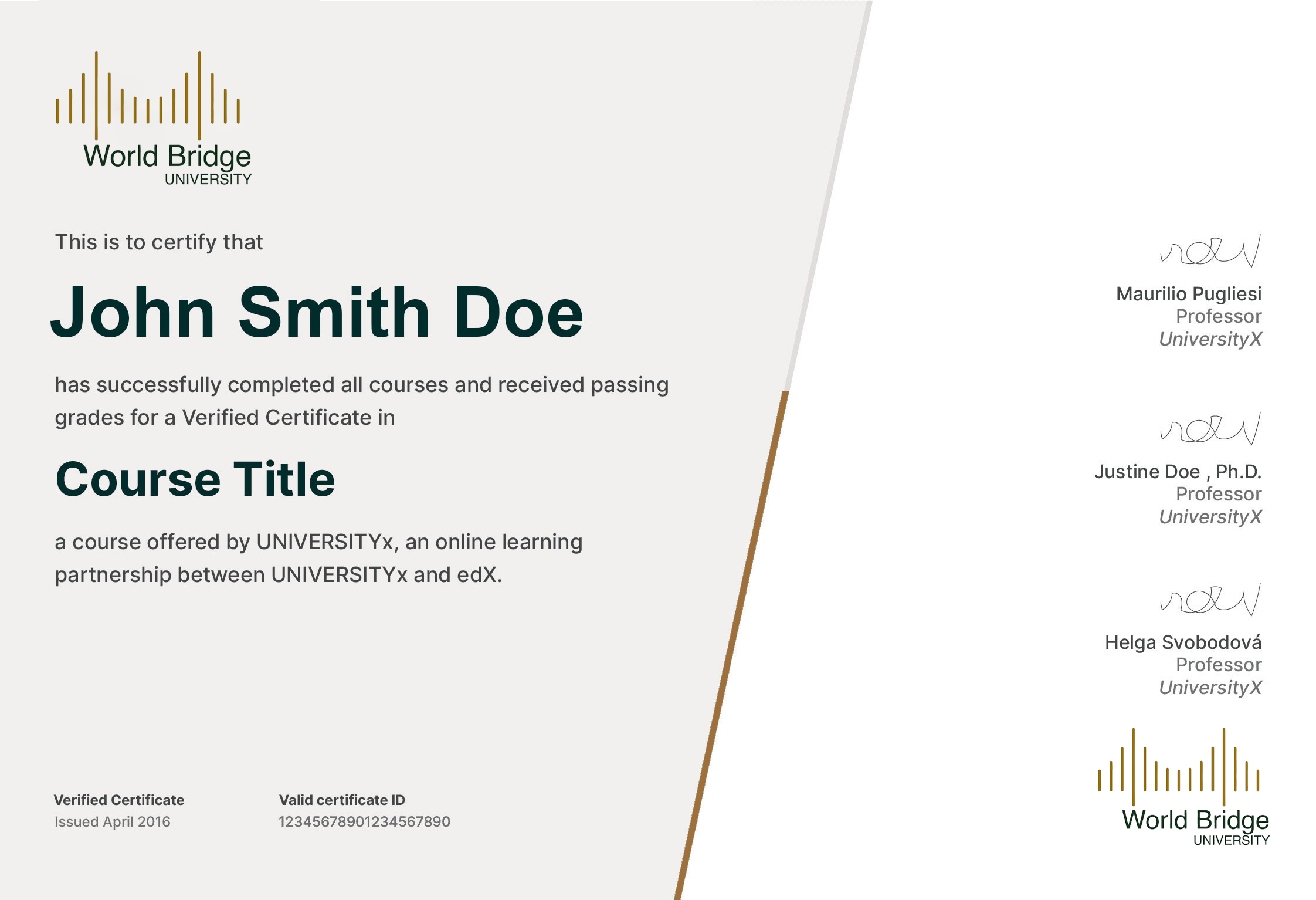Advanced Professional Certificate in Performance Measurement
Completion Time
1 Month
Accreditation
5 CPD Hours
Level
Advanced
Start time
Anytime
About the course
The aim of this course is to provide participants with a comprehensive understanding of performance measurement concepts, metrics, and frameworks. Participants will learn to analyze, evaluate, and apply performance measurement tools to improve organizational performance and make informed decisions.
Course details
This course will introduce participants to the fundamentals of performance measurement, including concepts, metrics, and frameworks. Participants will learn to identify, select, and apply performance measurement tools to improve organizational performance. The course will cover different performance measurement metrics and frameworks, including financial, operational, and balanced scorecards.
After the successful completion of this course, you will understand the following;
Financial Performance and Economic Models:
- Calculate and interpret common financial ratios.
- Analyze a business's financial statements.
- Evaluate a company's financial performance using market-based measures.
- Compare and contrast the advantages and disadvantages of using accounting and market-based measures for financial performance analysis.
- Identify trends and patterns in a business's financial performance over time.
- Interpret financial performance data in the context of industry benchmarks and competitors.
- Apply critical thinking skills to assess the reliability and validity of financial performance data.
- Synthesize the impact of external factors, such as economic conditions and regulatory environment, on financial performance analysis.
- Define and explain the concept of economic value added EVA.
- Calculate EVA using company financial data.
- Interpret EVA results to evaluate a company's financial performance.
- Compare EVA results to other financial performance measures, such as return on investment ROI and return on equity ROE.
- Evaluate the impact of EVA on a company's financial decision making, such as investment and financing decisions.
Operational Performance and Customer Satisfaction:
- Define and explain the concept of operational performance.
- Identify and define key drivers of operational performance, including quality, dependability, speed, cost, and flexibility.
- Develop and implement metrics to track and measure each driver of operational performance.
- Analyze and interpret operational performance data to inform decision making and continuous improvement initiatives.
- Evaluate the relationships between different drivers of operational performance and the impact on overall performance.
- Apply best practices for data collection, storage, and analysis in operational performance measurement.
- Synthesize the impact of technology and data analytics on operational performance measurement and decision making.
- Evaluate the trade-offs between operational performance drivers, such as cost and quality, in decision making.
- Apply critical thinking skills to assess the validity and reliability of operational performance data.
Profitability and Intellectual Capital:
- Understand the principles of activity-based costing and its application to customer profitability analysis.
- Analyze customer data to identify cost drivers and calculate customer profitability.
- Calculate customer lifetime value using company data.
- Interpret customer profitability analysis results and make recommendations for improvement.
- Develop strategies to maximize customer profitability.
- Define and explain the concepts of customer profitability analysis and customer lifetime value.
- Apply activity-based costing to allocate costs to individual customers and calculate customer profitability.
- Calculate customer lifetime value using company data, including customer acquisition cost and expected customer lifespan.
- Evaluate the impact of customer profitability analysis on sales and marketing strategies, customer retention, and customer relationship management.
- Synthesize the relationship between customer profitability and overall organizational profitability.
- Analyze customer data to identify trends and patterns in customer behaviour and performance.
- Evaluate the trade-offs between serving profitable and unprofitable customers in decision-making.
Performance Measurement Concepts and Framework:
- Definition and explanation of performance measurement metrics and frameworks
- Different performance measurement metrics and frameworks, including financial, operational, and balanced scorecards
- Relationships between different performance measurement metrics and frameworks and their impact on decision making
- Evaluation of the impact of performance measurement metrics and frameworks on organizational culture, employee motivation, and performance improvement
- Trade-offs between different performance measurement metrics and frameworks in decision making
- Best practices for data collection, storage, and analysis in performance measurement metric and framework selection
- Impact of technology and data analytics on performance measurement metric and framework selection and Implementation
- Purpose and components of the Balanced Scorecard, Performance Prism, SMART Pyramid, and the European Foundation for Quality Management EFQM model
Module: Performance Measurement
Lecture: 4
Quiz: 1
This course will provide an introduction to the foundational principles of performance measurement, encompassing key concepts, metrics, and various frameworks. Participants will acquire the skills to discern, choose, and implement tools for gauging performance, ultimately enhancing organizational effectiveness. Throughout the course, a diverse array of performance measurement criteria and frameworks will be explored, spanning financial, operational, and balanced scorecard perspectives.
-
Financial Performance and Economic Models
-
Operational Performance and Customer Satisfaction
-
Performance Measurement Concepts and Framework
-
Profitability and Intellectual Capital
-
Performance Measurement
Accreditation
All of our courses are accredited by the relevant partners and awarding bodies. Please refer to our information in about us for more details.Entry requirement
There are no strict entry requirements for this course. Work experience will be added advantage to understanding the content of the course.The certificate is designed to enhance the learner's knowledge in the field. This certificate is for everyone eager to know more and get updated on current ideas in their respective field. We recommend this certificate for the following audience.
- Managers and supervisors
- Business owners and entrepreneurs
- Financial analysts and accountants
- Operations managers
- Human resource professionals
- Data analysts and data scientists
- Quality control professionals
- Project managers
- Consultants
Sample Certificate

Empowering Your Path with Knowledge that Connects and Inspires
Find Programs Aligned with Purpose and Global Impact:
World Bridge University offers diverse, globally-focused programs designed to foster understanding and resilience in a rapidly changing world.
Learn Flexibly and Inclusively:
Our courses are accessible anywhere, enabling you to expand your mind and connect with others across borders at your own pace.
Earn a Credential that Reflects True Growth:
Achieve certification in programs that emphasize not only expertise but also empathy and cultural understanding.
Engage in Your Chosen Field with Purpose
Take the knowledge and skills you gain here to create positive change, building a future marked by inclusivity, sustainability, and collaboration.
How students similar to yourself are reaching their aspirations.
At World Bridge University, our students don’t just gain skills; they grow in empathy, connect across cultures, and shape a future grounded in inclusivity and collaboration.

Kim A.
Ghana
These short courses have been a game-changer for my career. The knowledge and skills I gained here helped me secure a promotion and a substantial pay raise. I'm grateful for the opportunity to learn from experts in the field.
Advanced Professional Certificate Courses

Hollie W.
Kenya
I can't recommend these courses enough! The content is well-structured, and the instructors are top-notch. I completed a course in project management, and it immediately boosted my confidence and job prospects.
Advanced Professional Certificate Courses

Omar A.
Pakistan
I was pleasantly surprised by how practical and hands-on the courses were. The skills I acquired here are directly applicable to my daily work, and I've become a more valuable asset to my company.
Professional Certificate Courses

Austin K.
Sweden
I initially had reservations about online learning, but these short courses completely changed my mind. The platform is user-friendly, and the support from the instructors is outstanding.
Professional Certificate Courses

Huzaifa A.
United Arab Emirates
These courses are a fantastic investment in your professional growth. The price is reasonable, and the knowledge gained is priceless. I now feel more confident and competitive in my industry.
Advanced Professional Certificate Courses

Jolene P.
United Kingdom
The selection of courses on this website is impressive. I've completed multiple courses, and they've all been incredibly enriching. I'm grateful for the opportunity to learn and grow.
Advanced Professional Certificate Courses

